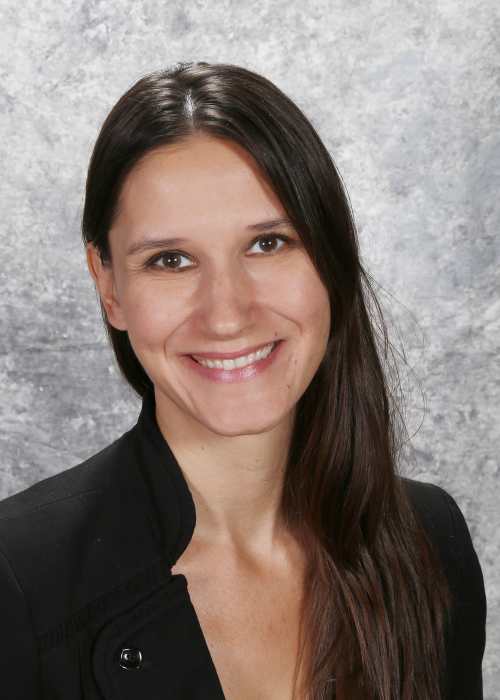IBPA CEO Angela Bole on Facing the Many Challenges of Indie Publishing
Definitions from an array of sources would tell you that “independent” applies to those not beholden to someone else’s control or decision-making. Shortened to “indie,” the term shifts to a colloquial shorthand for bucking trends, being cool, and thinking outside the mainstream. It’s what we’re dedicated to discovering at Foreword.
But there’s so much more about being indie than just being cool. Going it alone—or at least without the help of the structure and foundation that comes with having a parent company—is hard work. Being an independent publisher means that you’re navigating an industry in flux with little guidance. Or at least it does in theory. The Independent Book Publishers Association (IBPA) exists to bring the power of numbers to individual indie publishers, allowing them to learn from each other, pool resources, and take advantage of the power of a consortium. (It is a mission I believe in so strongly that, as of July 1, I’ll be joining the IBPA Board of Directors.)
IBPA is led by Angela Bole, a CEO who will get on the phone with IBPA members, listen to their concerns, and come up with innovative solutions. Angela helps guide IBPA with the belief that the publishing industry needs to “start judging a book based on the professionalism of the final product, not on the business model used to produce it.”
What is the goal of the Independent Book Publishers Association?

Angela Bole: 'The traditional publishing industry still stigmatizes indie publishers.'
As a professional publishers’ association, IBPA works to level the playing field for independent publishers and self-published authors through advocacy, education, cooperative marketing programs, and discounts on services every publisher needs. Everyone in the IBPA office signs their emails, “I’m happy to help.” That sums up the IBPA ethos, I think.
When applied to publishers, the word “independent” can have many definitions. How do you define it?
IBPA defines “independent” as referring to any person or organization publishing books outside the mainstream publishing conglomerates. This includes small and large independent presses, self-published authors, and association presses.
What do you think are some of the biggest challenges indie publishers face?
Despite incredible advances in content and production, the traditional publishing industry still stigmatizes indie publishers and makes it harder for them to get the same consideration and services that the big houses receive without question. If you’re going to be indie, you’re going to have to fight harder. .. for everything.
Most specifically, you’re going to have to fight for traditional distribution. I’m not talking about wholesale distribution coupled with POD. I’m talking about traditional distribution coupled with a sales force tasked with pushing your books into bookstores, libraries, etc. For most indie publishers, this is the holy grail. Yes, you’ll pay additional fees for the distributor’s efforts, and you’ll have to contend with returns, but without traditional distribution an indie publisher will never see his or her books on bookstore shelves. It’s a fact of business.
Beyond traditional distribution, general marketing is also a challenge. I see lots of IBPA members approach marketing like a sprint, e.g., short bursts of this or that during a finite period of time. Marketing isn’t a sprint, it’s a marathon. You have a plan and train well in advance and then be prepared for long haul execution. If you don’t have the stamina for something like this, you won’t be as successful as you could be.
What is something specific IBPA is doing to help with the “leveling of the playing field?’
Too often, IBPA has noticed a bias against self-published authors, independent publishers, and hybrid presses when it comes to choosing titles or authors for book review consideration, book award contests, association memberships, and inclusion on independent bookstore shelves. So we’ve developed the Industry Checklist for a Professionally Published Book to help industry professionals and independent publishers and authors bridge this gap by offering a structured means by which to ensure that books be judged on merit and quality rather than on the business model used to produce them or the size of the publisher.
In form, the checklist is a 2-page document providing an at-a-glance method by which to gauge the professional presentation of a book. It creates an unbiased measure by which to critique a published book.
As an industry, we need to get to a place where we start judging a book based on the professionalism of the final product, not on the business model used to produce it. The checklist start us on this path.
What are some of IBPA’s short-term goals?
As an association of over 3,000 members, IBPA has a lot of interests to serve and we can’t serve them all from a single centralized location. This means, in the short term, we’re looking for innovative ways to strengthen the one-to-one connections between members.
It’s important for us to do this both offline and online. For online networking, for example, we recently launched a new social networking platform called SocialLink. For offline networking, we’re hoping to empower “IBPA ambassadors” across the country who can host social and educational get-togethers in their local area.
Associations work best when the members can associate with one another and feel part of a community that has their best interests at heart. I believe the short-term initiatives we put in place to foster connections between members will ensure IBPA remains relevant in the long term, as well.
IBPA recently hosted its annual Publishing University. Tell us about it.
Publishing University is IBPA’s annual conference. We host it in a different city each year so we can reach as many members as possible. It’s amazing every year, but 2017 was an especially good event. We sold out in terms of attendance and sponsorship and the collaborative energy was strongly felt by everyone involved.
In addition to general sessions and nearly thirty breakout sessions, Publishing University attendees can take advantage of one-on-one “Ask the Experts” sessions with industry folks who have been where they’re trying to go. “Ask the Experts” is always a highlight. Again, it connects to the desire people have for one-to-one connections. And, it truly highlights the IBPA motto of “helping each other achieve and succeed.”
In terms of something I learned that I can directly apply to IBPA, I think it reinforced for me the need to foster community whenever and however we can. It’s not just about publishing well, it’s about publishing well together.
How do you go about creating the programming that takes place at PubU?
It’s a lengthy process! As soon as the 2017 show ended, we opened the 2018 Call for Speakers application.
We receive a little more than 100 applications each year, which we use to fill the nearly thirty breakout sessions. We’re looking for a mix of topics with some returning speakers and some new blood to infuse fresh perspectives into the program. Marketing topics always do well, but we need to cover the full publishing process, so we’re looking for conversations around design, editorial, production, etc., as well.
The keynote speaker and general sessions are brainstormed by the IBPA board of directors. The board is looking for relevant topics that can inform most, if not all, of the attendees. This isn’t always an easy thing to do when dealing with such a diverse membership base. Sometimes we hit it out of the park; sometimes we’re a little off center. Always, however, attendees can take something away from the general discussions that’s applicable to their work.
Any final words of wisdom/encouragement/warning?
For sure I want to leave with some words of encouragement. Indie publishing can be an isolating business. Remember, however, that you’re not alone. There is a growing community of indie publishers locally and nationally ready to receive you and help you on your journey.
Regardless of whether you decide to directly engage with the indie publishing community, however, please, please do what you can to keep your sense of humor. You’re on an incredible journey and it should be fun! Celebrate your successes, no matter how small, and be sure to keep the jokes plentiful along the way.

Seth Dellon is the Associate Publisher of Foreword Reviews. You can meet him or hear him speak at most of the events Foreword attends, and contact him at seth@forewordreviews.com.
Seth Dellon
